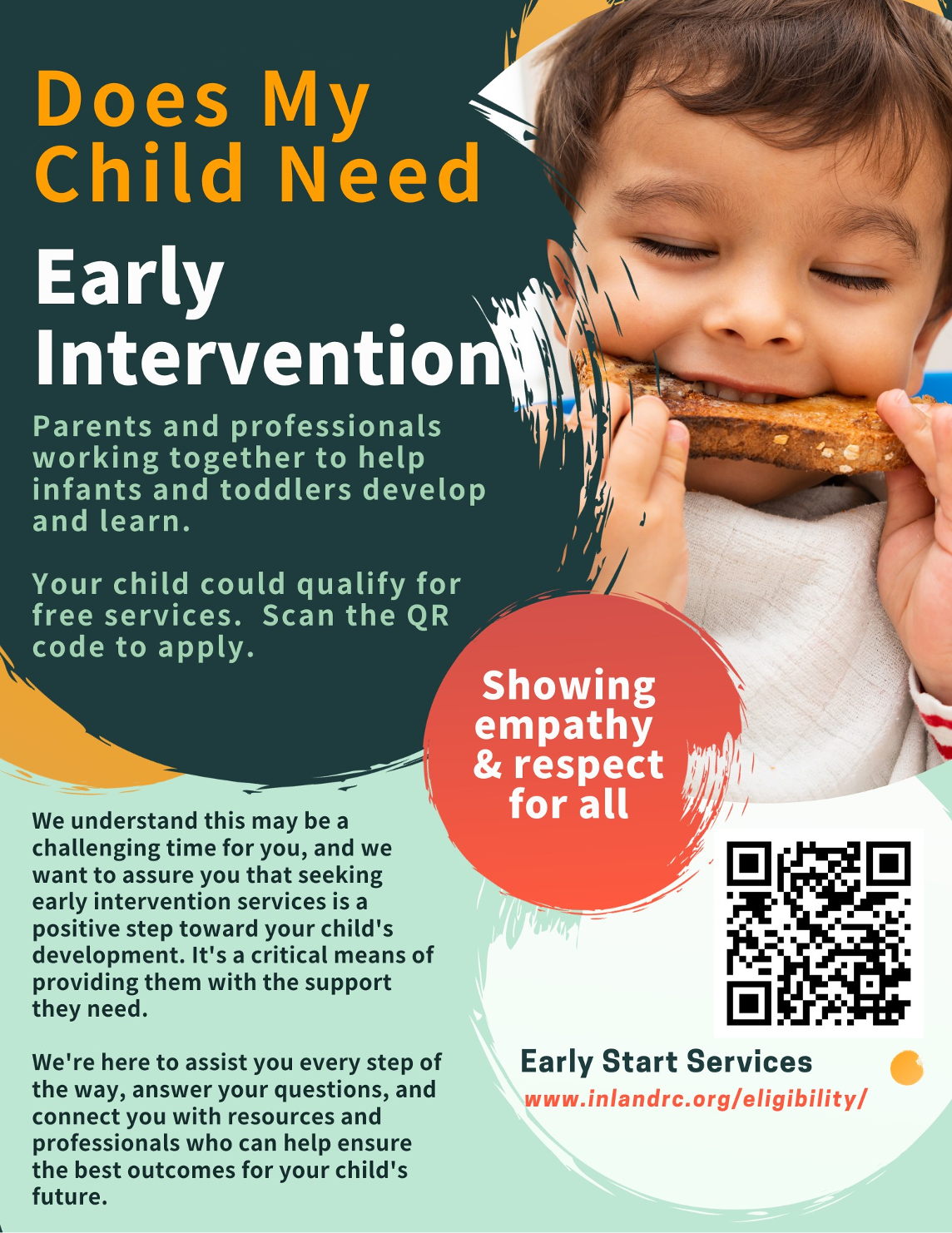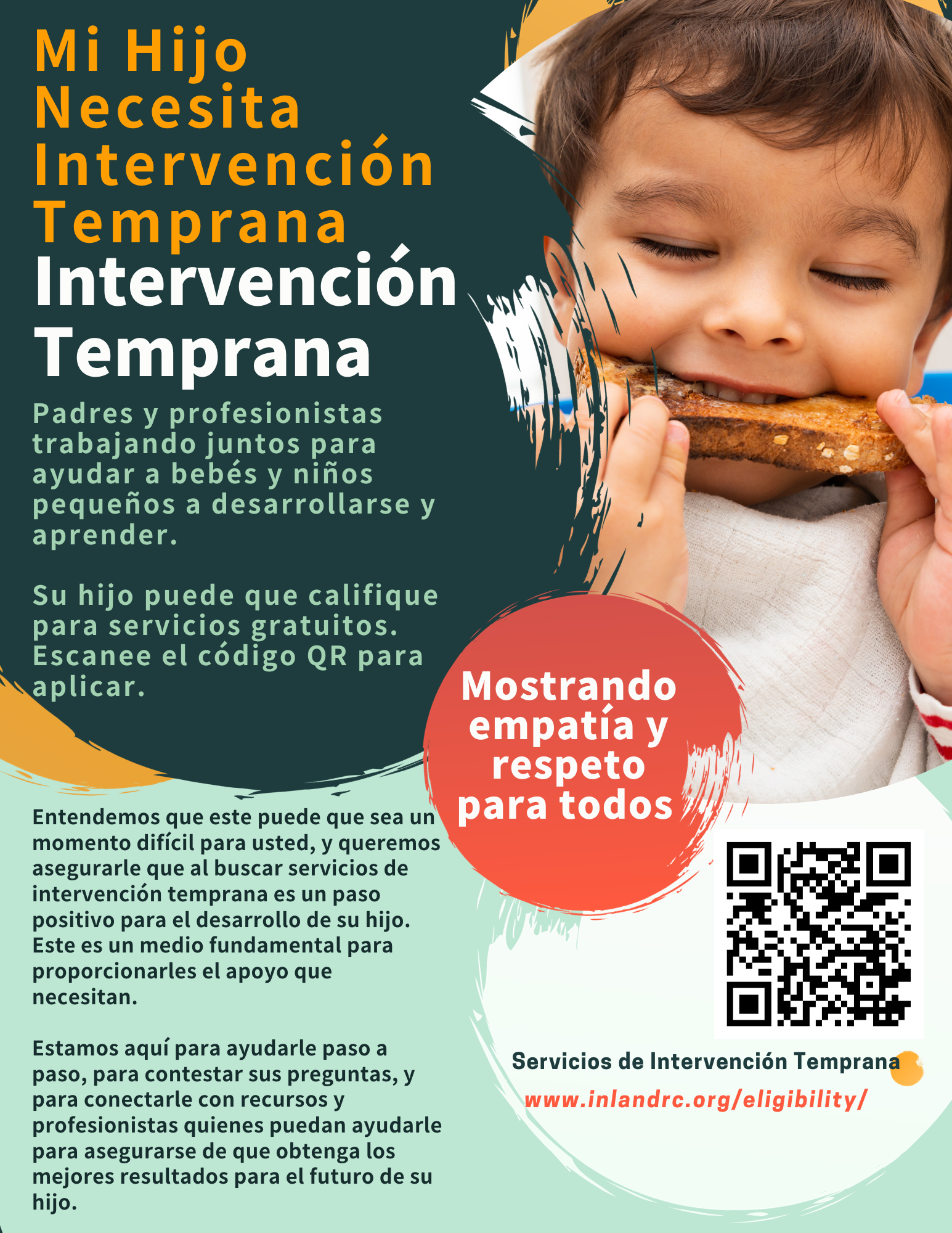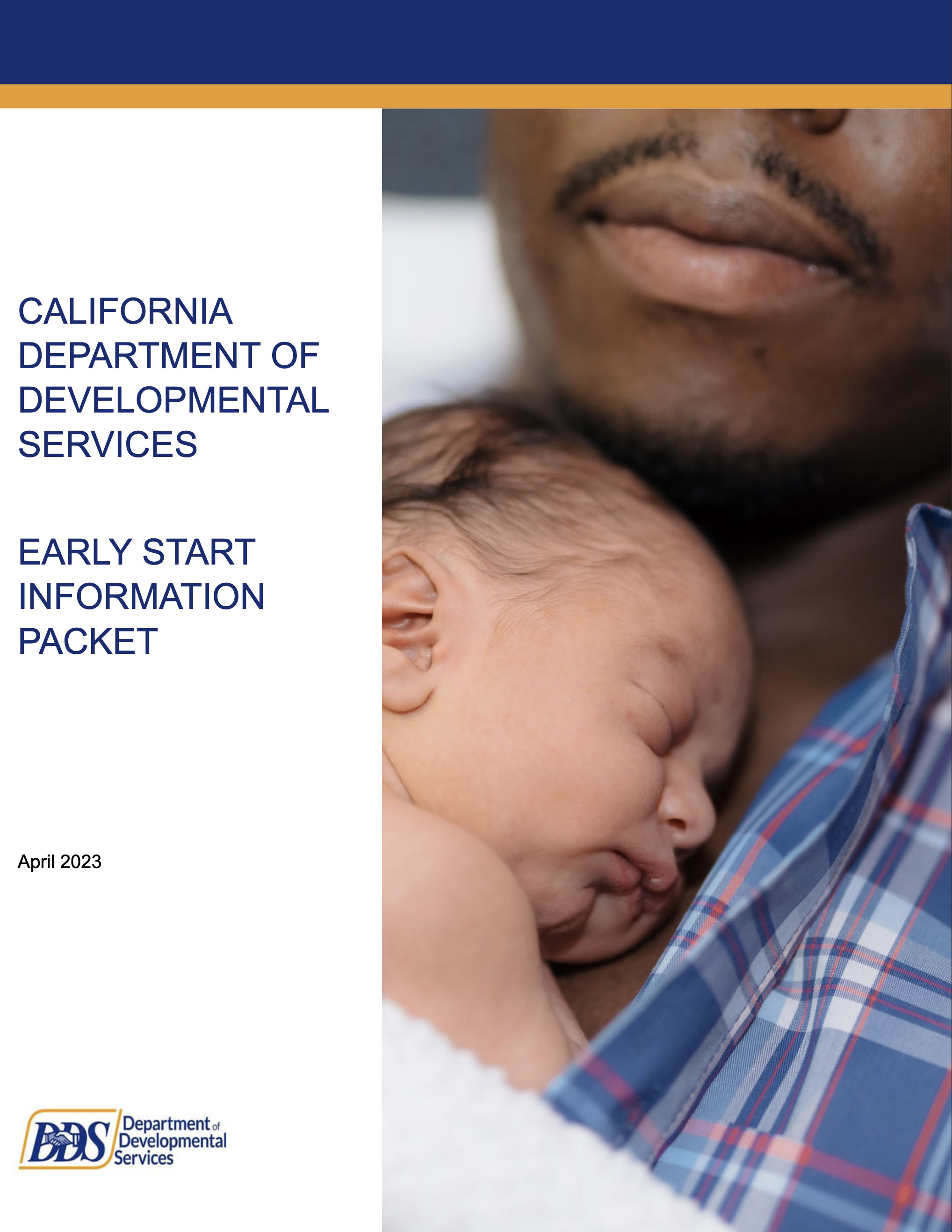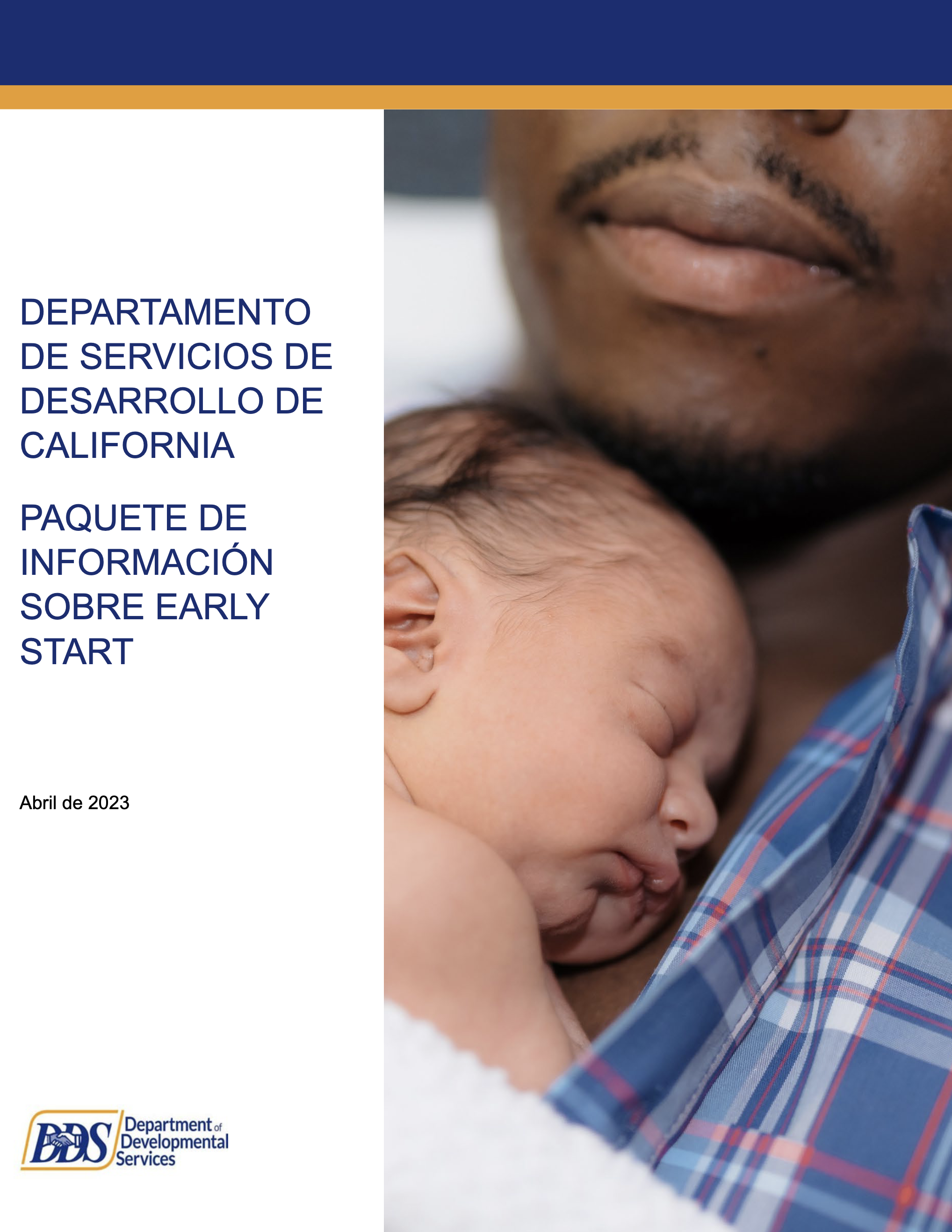Early Start
Ages 0-5
Early Intervention
Early intervention offers a range of services and support designed to address the developmental needs of young children and enhance their outcomes. Getting the right help early on can make a significant difference in a child’s growth and learning. By accessing quality services, treatments, and educational resources, you provide your child with the tools they need to thrive.
Treatment: Early Intervention
Early intervention involves therapeutic and educational services to support children with developmental delays or disabilities. Early diagnosis and interventions for Autism are more likely to have major long-term positive effects on symptoms and later skills. It can help Autistic children significantly gain language, social skills, and cognitive function. Addressing developmental issues early may reduce the support needed over time.


Diagnosing Autism
Autism can be diagnosed by a specialist as early as age 2, but many children are diagnosed around age 5. Visit https://ieautism.org/diagnosis-and-evaluation-assistance/ for a list of experienced local diagnosticians here in the Inland Empire.
What to Do If You Notice These Traits
If you see these traits in your child, it is important to talk to a healthcare provider. Early diagnosis and intervention can make a big difference.

From birth to five years of age, height and weight are not the only developmental milestones parents and caregivers should track. Other important milestones include how a child speaks, plays, acts, and learns. For children on the autism spectrum, early detection of developmental delays it critical. With early detection and intervention, children who are diagnosed with autism spectrum disorder are more likely to become enrolled in mainstream kindergarten classes, gain the skills needed to increase social opportunities, and reach their full potential throughout their lifetime.

Autism Spectrum Disorder (ASD), hereafter referred to as Autism (which includes Asperger’s Disorder and Pervasive Developmental Disorder – Not Otherwise Specified [PDD-NOS]), is a complex, lifelong developmental condition that typically appears during early childhood and can impact a person’s social skills, communication, relationships, and self-regulation.
Free: California Early Start Program (ages 0-3 years)
California Early Start is a federally funded program through Part C of the Individuals with Disabilities Education Act (IDEA). It ensures that eligible infants, toddlers, and their families receive evaluation and assessment. Early intervention involves promptly identifying delays and risk factors and assisting in eliminating or minimizing problems resulting from them. These services are designed to meet the developmental needs of each eligible infant or toddler and the family's needs related to their development.
If you think your baby or toddler (from birth to 3 years old) has a delay or disability or may have one, they may be able to get free Early Start services, no matter your documentation status or the language you speak. Early Start is a program that works with you and your child as a team to provide the best services for your child to help with their developmental needs and goals.
To get Early Start services, your child must meet one of these requirements:
- Have a delay of at least 25% in one or more areas of their development, such as thinking, talking, listening, playing, learning, or moving; or
- Have a condition that makes it very likely that they will have a delay in their development, such as Fetal Alcohol Syndrome or
- Have a combination of health problems that puts them at risk of having a serious delay in their development. A qualified person must diagnose these problems.
If your child meets one of these requirements, they may be able to get Early Start services through Inland Regional Center if you live in Riverside or San Bernardino counties. You only have to complete an easy online application. You will receive an email asking you to send in your medical records.
Early Intervention Services are based on the child's needs and tend to follow a parent education model, which may not be as intensive as a medical model paid for by medical insurance. Services may include Assistive Technology, Audiology, Family Training/Counseling, Medical Services, Nursing Services, Nutrition Services, Occupational Therapy, Physical Therapy, Psychological Services, Social Work/ Service Coordination, Speech and language, Transportation, and Vision Services.
Eligibility Criteria and Applications for Inland Regional Center
Free: School District
Children aged 3 to 5 who have been identified with a disability or developmental delay can qualify for an IEP. This is guaranteed under the Individuals with Disabilities Education Act (IDEA). The process begins with a comprehensive evaluation to determine the child's specific needs. Parents can request this evaluation, which teachers or healthcare providers can also recommend. If the child is eligible, a team, including parents, teachers, and specialists, will develop an IEP. This document outlines the child's educational goals and the specific services and accommodations the school will provide.
The IEP is reviewed at least annually to ensure it continues to meet the child's needs. Adjustments can be made based on the child's progress and any new challenges. The IEP can include various services such as speech therapy, occupational therapy, physical therapy, and specialized instruction. These services help the child develop essential skills and participate in education. These services are secondary and are not therapeutic.
Parents play a crucial role in the IEP process. They are involved in every step, from the initial evaluation to the development and review of the IEP.
Free: Regional Center (ages 3-5 yrs)
A regional center in California is a local agency that helps people with developmental disabilities and their families. These centers are nonprofit organizations that provide various services, such as assessments, case management, and care coordination. There are 21 regional centers across the state, each serving a specific geographic area. Inland Regional Center serves residents of Riverside and San Bernardino Counties.
Diagnoses that may qualify a person for Regional Center services include the following developmental disabilities: Autism, Cerebral Palsy, Intellectual Disability, Epilepsy, or a condition closely related to or that require treatment similar to that required for an intellectual disability. In addition, to qualify for Regional Center services, a person's developmental disability must:
- originate before age 18
- be expected to continue indefinitely
- be a substantial disability, meaning the person experiences significant limitations in three or more of the following areas: self-care, language, learning, mobility, self-direction, capacity for independent living, economic self-sufficiency
Learning disabilities, or disabilities solely psychiatric or physical, are not included in the definition of developmental.
Download A list of common services that may be available depending on the person's need
Essential Resources
Understanding autism begins with recognizing key developmental milestones, which help identify typical growth patterns and potential early indicators of autism. Signs and characteristics of autism can vary but often include differences in social interaction, communication, and behavior. Engaging with professionals is essential for families navigating a potential autism diagnosis; open discussions with specialists provide insights into assessment options, intervention strategies, and support resources. Early awareness and proactive communication can make a significant difference in accessing timely support and fostering development. Here are additional resources that may offer valuable guidance and support for you on your journey.
We are here to help!
If you have questions or need assistance in navigating any of these services, please reach out to us at (951) 220-6922 or [email protected]
Knowledge is Empowerment
What resources are you looking for?
Communication Toolkit
As many as 30% of autistic children/adults have nonspeaking autism (nonverbal autism) or are minimally verbal. Everyone deserves to be safe in their community. Thank you to Ability Central and SymbolStix for making this resource possible.
Families will sometimes seek special funding to help cover the costs of treatment, assessment, advocacy, or emergency expenses. These resources may be of help. Please check with the organization for the latest information including deadlines for applications.
Act Today
www.act-today.org
(877) 9ACT-TODAY
ACT Today!’s goal is to introduce and help facilitate early and on-going treatment by providing the necessary resources including funding, guidance, referrals and follow up to individuals with Autism Spectrum Disorders and their families. ACT Today! offers a grant program for assessments and treatments that may not otherwise be covered privately or by other third-party funding sources such as school districts, county programs, insurance, and/or other grant making entities. Applicants must meet the grant program criteria and complete the Grant Application. Typical grants run $100-$5,000. Transportation requests (cars, car repair, transportation passes, air travel); Hyperbaric Oxygen Therapy; or Personal Needs (rent, utilities, family vacations).
Angel View
67625 E. Palm Canyon Dr., Suite 7A, Cathedral City, CA 92234
(760) 329-6471
https://www.angelview.org
Offers a mini-grant program to provide much needed equipment like specialized car seats, orthopedic shoes, communication devices, adaptive equipment and mobility devices. And we enable children with a wide range of disabilities to participate in programs like the American Youth Soccer Organization (AYSO) VIP soccer league, UCP Skillsbuilders, art classes, swim programs, and more.
Apraxia Kids
www.apraxia-kids.org/speech-tablets-for-apraxia
Each year, Apraxia Kids awards speech tablets to children and families in need throughout the USA and Canada. Children with apraxia can use these speech tablets for speech practice and/or as a speech-generating device.
Ariana Rye Foundation
www.arianaryefoundation.com
The Ariana Rye Foundation is a non-profit organization dedicated to helping children with disabilities get medical equipment to foster their social, mental and physical development. Helping children with disabilities get medical equipment (Feeding chairs, bath chairs, floor sitter chair, car seats, adaptive strollers, mats, wedges, specialty swings, helmets, specialty tables and trays, and sensory equipment) to foster their social, mental and physical development. Grants for up to $1000 per child.
Autism and Race
https://autismandrace.com/
The Fund practices redistributive justice and mutual aid by returning and sharing money directly to and with autistic people of color. We provide microgrants to Black, Brown, Native, Asian, and mixed-race people in the autistic community for survival, organizing, leisure, and pleasure. Parents can not apply.
Autism Spectrum Disorder Foundation
https://myasdf.org/
Applications open in May and October for iPad for Kids Program.
https://avenuesforautism.org/funding/ Can help families pay for autism services not covered by traditional insurance or grants. Such services include early intervention programs, assessments and testing, social skills programs, college support programs, transition-to-employment programs, touch devices, and recreational activities. Award amounts depend on fund availability, yearly fundraising activities, and the number of qualified applications received.
CARE Foundation (California Autism Resource & Evaluation Foundation)
http://careautismfoundation.com/our-causes/
CARE Grant Program is for helping families with medication, autism diagnosis/evaluation, therapy session (including speech, OT and ABA,) and autism summer camps. ll grants awarded are paid directly to the vendor or service provider to pay for tuition, supplements, medication, medical evaluation, testing, therapies, etc. Anybody who has a child diagnosed with autism and has an income level less than $75,000 per year for the entire household can apply to this grant. Before the grant is awarded, proof of ASD diagnosis from medical professional as well as IRS Tax forms indicating the household income need to be provided. Grant applications are accepted year round with no deadline. Grants are funded throughout the year and are determined by the funding available. (These grants are provided by the fundraising efforts of CARE Foundation team).
Lilly’s Voice
www.lillysvoice.org
Assists people with autism and are non-verbal that have been rejected
by other programs and cannot afford an AAC device without help.
The National Autism Association Give a Voice Program
https://nationalautismassociation.org/family-support/programs/naas-give-a-voice-program/
The National Autism Association (NAA) has a Give a Voice Program has a grant program to provide devices to nonverbal and minimal verbal individuals as well as a program offering access to certified practitioners in S2C (Spelling 2 Communicate) and RPM (Rapid Prompting Method) while continuing to offer our iPad AAC program. on. They also have several downloadable toolkits and resources.
Small Steps in Speech
http://www.smallstepsinspeech.org/grant-application/individuals/
Provides grants on behalf of children with speech and language disorders for therapies, treatments, communicative devices, and other services aimed at improving their communication skills. Grants are awarded to individuals from age 3 to 22 who are U.S. citizens living in the U.S. Please note when applying for a grant that the child must be 3 years of age at the time of the application deadline (February 1, May 1, August 1, November 1). Grants are not based solely on financial need. The financial needs of the family are considered, however, applications will not be accepted for a joint family income in excess of $125,000.
Special Angels Foundation, Inc.
4195 Chino Hills Parkway, #373 , Chino Hills
1-888-835-3919
specialangelsfoundation.org/
Special Angels Foundation provides grants of up to $2500 for equipment and up to $1500 for therapy to families raising children with special needs so that they may purchase specialized equipment, underwrite additional therapies and more. Check the website for more info.
Spectrum of Hope Foundation Advocacy Grant Program
Hacienda Heights
(626) 771-0034
https://www.spectrumhope.org/advocacy-grant/
May provide a maximum of $1000 grant for advocacy grants to fund (a) independent evaluation/assessment, (b) special education advocacy (attorney/advocate fees, expert witness fees in hearings) , (c) Self-funding of mainstream treatment for autism (ABA therapy, and speech therapy), and (d) parent training and seminars, after funding from the Regional Center and school district have been denied. Families must have a child with autism must be under the age of 7 and the family must have a combined family income of $70,000 a year or less, be a California residents for at least one year and the funding sources that usually provide services to the child are exhausted (school, Regional Center). Visit the site for more details.
The Awesome Foundation
www.awesomefoundation.org/en/chapters/disability
Supports Ideas and Projects by People with Disabilities. The Awesome Foundation supports ideas and projects by people with disabilities through the Awesome Disability chapter. Makers, artists, writers, and others with disabilities are invited to apply for micro-grants. Applications are reviewed by the Awesome Disability trustees every month. Grant Amount: Grant amounts of up to $1,000 are available. Eligibility: Applicants should identify as a person with a disability. Due Date: Applications are accepted from the 1 st through the 15th of every month.
The Unforgettables Foundation
(909) 335-1600 or (951) 680-9996
http://unforgettables.org/
The Unforgettables Foundation provides financial assistance to those families with limited resources to help offset the costs of final arrangements. Currently, the Foundation’s help is granted to families throughout Riverside, San Bernardino and Orange Counties. In addition, this organization hold free group training sessions throughout Southern California in churches, synagogues, clinics, schools and offices, and valuable instruction on home and auto child safety.
United Healthcare Children’s Foundation (UHCCF)
1 (800) 328-5979 – extension 24459
https://www.uhccf.org/apply-for-a-grant/eligibility-requirements/
Offers assistance grants for medical services not fully covered by health insurance. Parents may apply for grants of up to $5,000 for health care services that will help improve their children’s health and quality of life. Examples include: speech therapy, physical therapy and psychotherapy sessions; medical equipment such as wheelchairs, braces, hearing aids and eyeglasses; orthodontia and dental treatments. To be eligible for UHCCF grants, children must be 16 years of age or younger. Families must meet economic guideline; reside in the United States and be covered by a commercial health insurance plan.
Variety Children’s Charity of the Desert
https://varietyofthedesert.org/our-programs/
The Children’s Charity of the Desert is dedicated to promoting the health, mobility, independence and social inclusion of special needs and disadvantaged children throughout the Coachella Valley. Provides grants for adaptive bikes.
Autism Society Options Policy
This Resource Guide was developed to provide families and professionals with an opportunity to find resources related to autism in the Inland Empire in one place.
All information provided or published by the Autism Society Inland Empire is for information purposes only. Specific treatment, therapy or services should be provided to an individual only at the direction of the individual’s doctor, caregiver, or other qualified professional. References to any treatment or therapy option, program, service, or treatment provider are not an endorsement by the Autism Society. References of treatments, therapies, programs, services, and/or providers are not intended to be comprehensive statements. You should investigate alternatives that may be more appropriate for a specific individual. The Autism Society assumes no responsibility for the use made of any information published or provided. The Autism Society Inland Empire provides information, but it does not constitute medical or legal information. Referrals provided are suggestions to organizations that might help, but do not constitute a recommendation. The Autism Society Inland Empire cannot be held responsible for consequences that arise from individual dealings with a professional or organization. The inclusion of any organization does not imply endorsement, and omission does not imply disapproval. The Autism Society Inland Empire may add or remove organizations from this list at its discretion.
If I Need Help
ifineedhelp.org
Non profit which uses QR Code Technology that can be accessed by computer or cell phone to provide help, emergency ID and peace of mind. They offer a free online member profile, and Emergency Q&A that can be edited in real time and emailed or printed in an emergency. Customizable ID products include ID cards, & wearables such as shoe/dog tags, patches, pins/clips, & apparel. Offers books on many safety topics, safety products including specialized locks, and clings for windows. Inland Regional Center vendor.
Seat Belt Buckle Guard
www.especialneeds.com
The Seat Belt Buckle Guard is a seat belt lock designed to prevent children with emotional and cognitive disabilities from releasing the seat belt while the car is in motion.
toddlermonitor™
toddlermonitor.com
toddlermonitor™ was created by a Mom, after her son snuck out of his bedroom and their house one night while she was sleeping. toddlermonitor™ hangs on your kid’s bedroom door and will alert your phone if your little escape artist leaves their bedroom at night. Get a great night’s sleep – that little one isn’t going anywhere!
Stickers and Decals for Cars and Windows can be purchased on ETSY or AMAZON.
Autism Society Options Policy
This Resource Guide was developed to provide families and professionals with an opportunity to find resources related to autism in the Inland Empire in one place.
All information provided or published by the Autism Society Inland Empire is for information purposes only. Specific treatment, therapy or services should be provided to an individual only at the direction of the individual’s doctor, caregiver, or other qualified professional. References to any treatment or therapy option, program, service, or treatment provider are not an endorsement by the Autism Society. References of treatments, therapies, programs, services, and/or providers are not intended to be comprehensive statements. You should investigate alternatives that may be more appropriate for a specific individual. The Autism Society assumes no responsibility for the use made of any information published or provided. The Autism Society Inland Empire provides information, but it does not constitute medical or legal information. Referrals provided are suggestions to organizations that might help, but do not constitute a recommendation. The Autism Society Inland Empire cannot be held responsible for consequences that arise from individual dealings with a professional or organization. The inclusion of any organization does not imply endorsement, and omission does not imply disapproval. The Autism Society Inland Empire may add or remove organizations from this list at its discretion.
Treatment: Medical Insurance
Medical insurance can often help cover early intervention services for children diagnosed with autism. These services are usually more intensive (more hours) and can include speech therapy, occupational therapy, and Applied Behavior Analysis (ABA), which can support a child's development. Many health insurance plans, including Medi-Cal, offer coverage for these services. It's always a good idea to check with your insurance provider to understand what services are covered and how to access them. Early intervention can make a big difference, so exploring these options is great.

This Resource Guide was developed to provide families and professionals with an opportunity to find resources related to autism in the Inland Empire in one place.

If you believe your child is not meeting the age-appropriate developmental milestones or you have any concerns about your child, talk to your pediatrician. Do not wait.
During your conversation with your pediatrician, it is important to be prepared. Remember, you are an expert on your child, you know them better than anyone else. You are your child’s greatest advocate.
Be prepared to discuss the developmental milestones your child is or is not meeting. Complete a developmental milestone checklist such as the M-CHAT and bring it with you to your appointment. Compare your child’s development to the chart to show your concerns logically.




